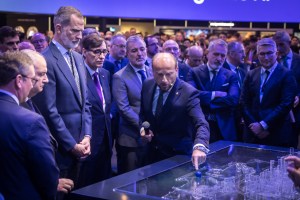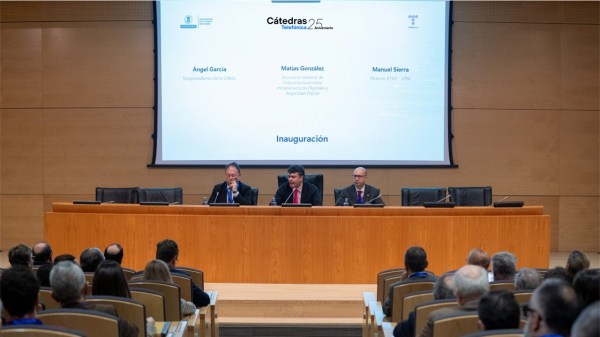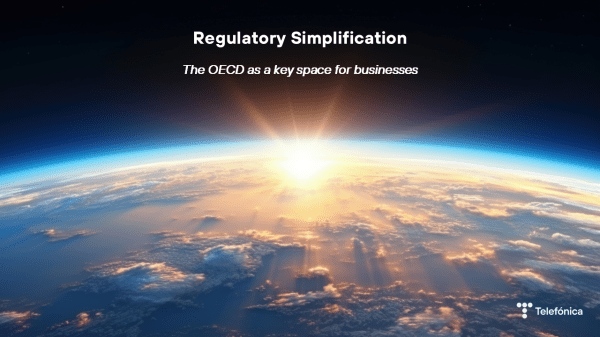 Chema AlonsoFormer Chief Data Officer, Telefonica.
Chema AlonsoFormer Chief Data Officer, Telefonica.
The 4th Annual Forum of IGF Spain was held last month (29-30 of May) in Zaragoza, the ancient Roman city of Caesar Augusta with more than 2000 years of history. The meeting was inaugurated by Mr. Víctor Calvo-Sotelo, Spanish Secretary of State for Telecommunications and Information Society, who together with local and regional authorities, representatives from the academia and the Chairman of the Organizational Committee, Mr. Pedro Canut, welcomed the participants.
Mr. Calvo Sotelo, in his opening remarks, highlighted the recent NETmundial meeting as a good example of a multistakeholder initiative with a valuable output. He underlined the support of the Spanish Government to such an approach, emphasizing the need to thoughtfully and precisely define roles and responsibilities of each interest group, and to further globalize ICANN and the IANA function to better reflect the new Internet geographic diversity. Problems like ICANN accountability, human rights and freedoms in the Net, on-line protection of children, sustainability of the business models, jurisdiction in Internet, etc. are still to be solved. International cooperation is needed to solve these issues, and European countries should take an active and leading role assuming the European Union as the framework from which to take action. Spain will offer all its collaboration and links with Europe and Latin America to help finding proper solutions.
This year’s Forum was organized around six roundtables: 1) Internet Governance after NETmundial, 2) Children in the Internet, 3) Restore Internet Confidence, 4) Internet economy challenges -employment engine and opportunities, 5) Cyber-security challenges and 6) Entrepreneurship in the Internet – people and technology; together with four plenary conferences: 1) Internet Governance: vision from Latin America, 2) ICANN internationalization and the IANA function, 3) Participation and democracy in the Internet Governance and 4) Defense of the general interest in the Net; and a final Open Forum. All presentations and debates were streamed live over the Internet and will be soon available at the IGF Spain webpage.
Representatives from Telefónica attended all the sessions and presented our views as speakers in roundtables 1, 2, 4 and 5. From a strictly Internet Governance point of view, the following sessions were the most interesting:
Roundtable 1 on Internet Governance after NETmundial was formed by Jorge Pérez (coordinator of IGF Spain and professor at the Universidad Politécnica of Madrid), Olga Cavalli (adviser at the Foreign Affairs Ministry of Argentina, professor at the Escuela Sur de Gobernanza de Internet and GAC member, among others), Gema Campillos (Deputy Director General of Information Society Services at the Spanish Ministry of Industry, Energy and Tourism), Christoph Steck (Public Policy & Internet Director at Telefónica, S.A.), Lía Hernandez (Professor at the universities of Panamá and Carlos III in Madrid and Civil Society representative at NETmundial) and >Eduardo Olier (professor at the University CEU San Pablo in Madrid). In general terms they recognized the good results achieved by NETmundial in terms of setting up a multistakeholder process and agreeing general and basic principles rather than the concrete results of such a process. Panelists identified issues that needed to be further developed after Netmundial: The ICANN/IANA globalization roadmap needs to be more clearly defined as well as more efforts are needed to configure roles and responsibilities of the different parties. Some critics arose on the low profile of the Council of Governmental Advisors. Civil society regretted the non-binding nature of the general principles agreed at Netmundial, which was not perceived negative by all panelists, in a reference to the Universal Declaration of Human Rights that did neither have a binding nature and at a later stage have been widely adopted. Civil society also requested more concrete actions, such as European “Marco Civil do Internet” based on the Brazilian one, and a deep discussion on hot issues such as Net Neutrality and surveillance.
Very interesting ideas on the need to create a specific legal structure for the Internet were introduced by Mr. Olier, comparing cyber-space with open seas, where no country has jurisdiction but there is an International Maritime Law to solve conflicts. Other speakers talked about the different layers that form the Internet (physical or technical, virtual where applications run and social) and the need to concentrate the governance debate in this last one. Finally there were some discussions on the future of the IGF and on the need or not to produce outputs in this event. Christoph Steck affirmed that the IGF should concentrate in debating what he considers are the three Internet challenges: Connectivity, Openness and Digital Confidence.
Participation and democracy in the Internet: this was a plenary conference where Suso Baleato (Civil Society representative at the OECD) and Professor José María Moreno debated and inspired the audience on the possibilities of new governance models not only for the Internet, but for any other processes. Mr. Baleato talked about the need to introduce new deliberative mechanisms to help produce better quality decisions in democratic societies. Such mechanisms, mostly based on ICT platforms, must solve one of the problems we have nowadays: the lack of inclusion of parts of our societies in the decision processes. Mr. Moreno described his team’s research on e-cognocracy, a new governance model based on knowledge which encompasses the classical participative/representative democracy with direct democracy through the Internet. This model has a dual approach: our classical democratic processes should continue to exist to take decisions at national / supranational level and long term oriented, while direct informed democracy must be oriented to solve short term needs at local level. Concrete ideas to be implemented using any of these two systems should be exposed to interested parties in the Internet and subject to a similar process of adherence and improvement as it already happens, for example, with the Internet technical standards and protocols ensuring their enrichment and an ample participation and consensus.
Defense of the general interest in the Net: the closing conference at IGF Spain 2014 was given by Juan Corro, Head of Cabinet of the Spanish Secretary of State for Telecommunications and Information Society. Leaving aside his governmental role, Mr. Corro had a very direct talk with the audience, in a way we are not used to see among politicians, getting a great engagement from the audience. Mr. Corro criticized the lack of legitimacy of most multistakeholder representatives, the recurrent excess of participation and transparency in a good number of multistakeholder Internet Governance fora which, in his personal view, only tries to hide non explicit interests, and the speed and overload of information which introduces too much “noise” in the decision taking, making very difficult a real and effective participation for most of the interested parties.
I must say that, in spite of lacking a desired larger participation, this year’s IGF Spain Annual Forum has been very interesting in terms of new ideas, not only for the Internet Governance but also for the way citizens will run our societies in the near future. I will certainly attend with interest next year!











